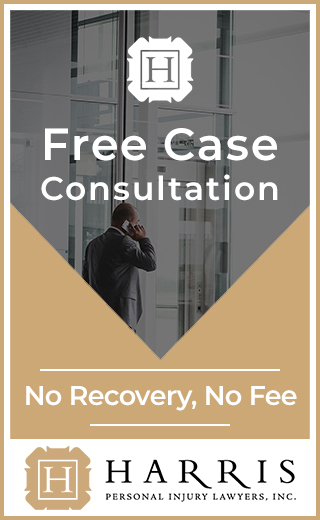San Clemente Slip and Fall Attorneys
San Clemente Slip and Fall Attorneys
When a person slips and falls on someone else's property, it may be possible to collect monetary damages from the property owner or occupier. Premises liability cases of this nature are complex because the duty of care owed to you at the time of the accident will depend on your visitor status, and many factors will influence the specific statutes and case law that apply to your claim. Our San Clemente slip and fall attorneys can review your case for free and help you plot the way forward. Our lawyers handle premises liability cases against residential property owners, businesses of all sizes, and government entities. At Harris Personal Injury Lawyers, we have helped clients collect more than $300 million in settlements and verdicts, including many substantial victories in slip and fall cases. To schedule a free consultation with one of our personal injury attorneys, call us today at 1-800-GO-HARRIS.
What Does “Duty of Care” Mean?
A duty of care is a legal obligation to exercise reasonable care given the circumstances. Property owners owe a duty of care to everyone who enters their premises, but the specific duty depends on the entrant’s visitor status. The three types of visitor status are invitee, licensee, and trespasser. Most slip and fall cases are brought by invitees who were injured on a business property. Invitees are owed the highest duty of care. Business owners not only must warn invitees about dangerous conditions on the premises, but they must also perform inspections to identify hazards that pose an injury risk. As such, even if the defendant asserts that he or she did not know about the hazard that caused your slip and fall, the duty of care may still have been breached if the hazard should have been discovered through reasonable inspection. When a property owner should have known about a hazard through the exercise of reasonable diligence, this is called having “constructive knowledge.” When one party breaches the duty of care owed to another party, it is called “negligence.” Most personal injury claims are filed on the basis of negligence. Our San Clemente slip and fall attorneys can investigate your accident to find out if the property owner or one of their employees had actual or constructive knowledge of the dangerous condition that caused your injury. Valuable evidence of negligence may include surveillance footage, photos of the hazard that caused your slip and fall, eyewitness deposition, the incident report, records of similar accidents occurring in the past, and building maintenance records.
What Does “Vicarious Liability” Mean?
It is often the case that a slip and fall is caused by the negligence of a business employee. For instance, an employee might mop a floor without placing a “wet floor” sign, or might forget to clean up a spilled beverage. In these scenarios, the employer may be held vicariously liable for the negligence of the employee even if the employer played no direct role in causing the injury. For vicarious liability to apply, your San Clemente slip and fall lawyer will have to prove that the negligent act or omission occurred when the employee was acting within the course and scope of his or her employment. That means if the employee created the hazard while off the clock, vicarious liability might not apply. Our attorneys can investigate to identify all potentially liable parties so you have the best possible chance of recovering a settlement.
What Does “Comparative Negligence” Mean?
Sometimes the negligence of multiple parties contributes to a single accident. When this happens, each party is assigned a percentage of fault in accordance with California’s comparative negligence law. If it is determined that the plaintiff’s own negligence played a role, then his or her financial recovery would be limited by his or her own percentage of fault. That means if your own negligence somehow contributed to your slip and fall, the defense will likely assert that your recovery should be reduced by your percentage of fault.
What Does It Mean to “Prove Causation?”
Proving causation means proving your damages would not have been incurred but for the tort. Evidence of causation may include surveillance footage, eyewitness deposition, and photos of your injuries and the hazard that caused them. If you had a pre-existing condition, the defense might dispute causation by asserting that you would have incurred the damages you are claiming even if the accident had not happened. Your lawyer might counter this defense using the deposition of medical experts and your treating physician, and your medical records from before and after the accident.
Contact Us Today for a Free Consultation with a San Clemente Slip and Fall Lawyer
When you retain our legal services, you won’t have to worry about navigating complex legal jargon and proceedings on your own. We will take over the logistics of your case and use our vast knowledge and resources to fight for the settlement you deserve. Send us a message on our Contact Page or dial 1-800-GO-HARRIS to schedule a free case review.

